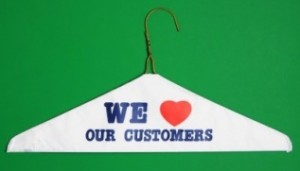Posts Tagged ‘Zappos’
5 Reasons that Startups & SmallBiz Must Engage Their Customers
Wednesday, March 23rd, 2011For some reason, recently I have talked to a number of people that have said the same thing to me. They basically say that their startup, small business and even enterprise company is too busy to actually engage their customers. Or they say that engaging and talking to your customers just is not a priority. My response boils down to this: Are you for real? Really, your business does not have time to talk to our customers or you think talking to customers isn’t really scalable so lets just not do it? That is garbage.
So I say stop right there. Stop spending all your time on powerpoints, writing long blog posts that no one reads, trying to figure out ways to increase prices on your customers, writing requirements for products your customers don’t want or chasing yet other pointless task. As entrepreneur Mark Cuban said earlier this week: YOUR CUSTOMERS OWN YOU Without your customers your business is WORTHLESS. Why do so many people fail to understand that basic concept?
So here are 5 reasons (and a bonus one!) why your startup or small business needs make it a priority to talk to your customers as often as possible:
1. Stop being nameless and faceless to your customers. Your customers have lots of options. They use lots of products in their daily life. So many of these products are from companies that customers think of as people in a far away skyscraper in New York or office park in the suburbs next to Red Lobster and Taco Bell. So be different. Put a name to a face for your business to your customers. When a customer uses your product they can identify with a real person instead of some random brand name. Human nature dictates that we all crave connections and if you can make that personal connection with a customer that will immediately distinguishes your business from all the noise that is out there.
2. Start creating deeper customer relationships out of the value you provide to your customers – Your customers have decided to do business with you. They have taken the step to pick YOU! So what should you do? Close the loop and show them how much it means that your customer picked your business from everyone out there. Then build on that value you are creating for your customer in their daily life and add some deeper bonds to that relationship by seeing (or listening) first hand how customers use your product, what are their other pain points for their own business. Actually showing that you care about your customers will go a long way because no one else really does take the steps to show that they care. Be different by showing that you give a hoot! It is that simple.
3. Get real feedback from your customers you can act on – Building on #2, take the opportunity to use your engagement with your customers to get tangible feedback about your product, the market, your competitors and your overall customer makeup. There is no better market research then actually talking to customers and hearing first hand what they are saying. I know people say it takes time to do this – to get the feedback and then to act on it. My suggestion, start small. One interaction a day, maybe two. The snowball effect of the feedback will help your business because you will get to see your business and product directly through the eyes of your customers! That is just invaluable. Here is an earlier post of ours on tools to help your business get feedback.
4. Gain credibility, loyalty and capital with customers – So you are getting feedback, showing that you care and are not nameless and faceless anymore. What does this do in the totality for your customers? Your business starts to create brand capital by building up credibility with your customers. This begins to set yourself apart from the crowd. That credibility with your customer then begins to be translated into a hugely valuable asset and that is customer loyalty. The reason why – because the customer sees that you are different than the others – you actually are paying attention to them. Back to high school and what happens when the cute guy/girl is paying attention to you – you notice! So your customers begin to notice and start to conclude your business is different than the others because you care about your customers. Sad, but that is a rare trait these days.
5. Time devoted to these relationships will help you in tough times & customers will not be so easy to turn their back on you – This all leads up to a major punchline. And it is this basic. Inevitably a customer will have a negative experience with your business. With no customer engagement, no credibility, no loyalty that has been built by your engagement efforts, you will lose that customer during that bad experience. On the other hand, if you have taken the time to engage your customers, that customer who is having a negative experience is much more likely to give you another chance. Also if they complain to the community, the crowd of customers that you have also engaged can step in and have your back. None of this happens without making customer engagement a central priority and following through.
6. (Bonus) Arming your customers with reasons to talk about your businesses – This is a no brainer. The more you engage your customers and follow up with “wow” moments – the more opportunities you give them to be your best salesperson. More stories mean more opportunities for your customers to spread the word about your business. What better way for you to get you more business through your brand evangelists that tell the stories of you wowing your customers.
So lets bring it back to the main argument you hear against doing all of this. Bottom line: Too few resources is a lame excuse for not engaging your customers! Try it by starting small. Everyone on your team needs to begin every morning engaging 1-2 customers and then build from there. Send a customer a short email or catch them on Twitter. Even a one person startup can even do this form of limited engagement. Still dont think this is worth your time? Zappos was founded on this customer engagement philosophy and I think it worked out pretty well for them. And oh by the way, Zappos started with this philosophy from the very earliest days when their founders responded to every customer’s email!
We would love to hear your stories of customer engagement. Feel free to leave them in the comments section.






